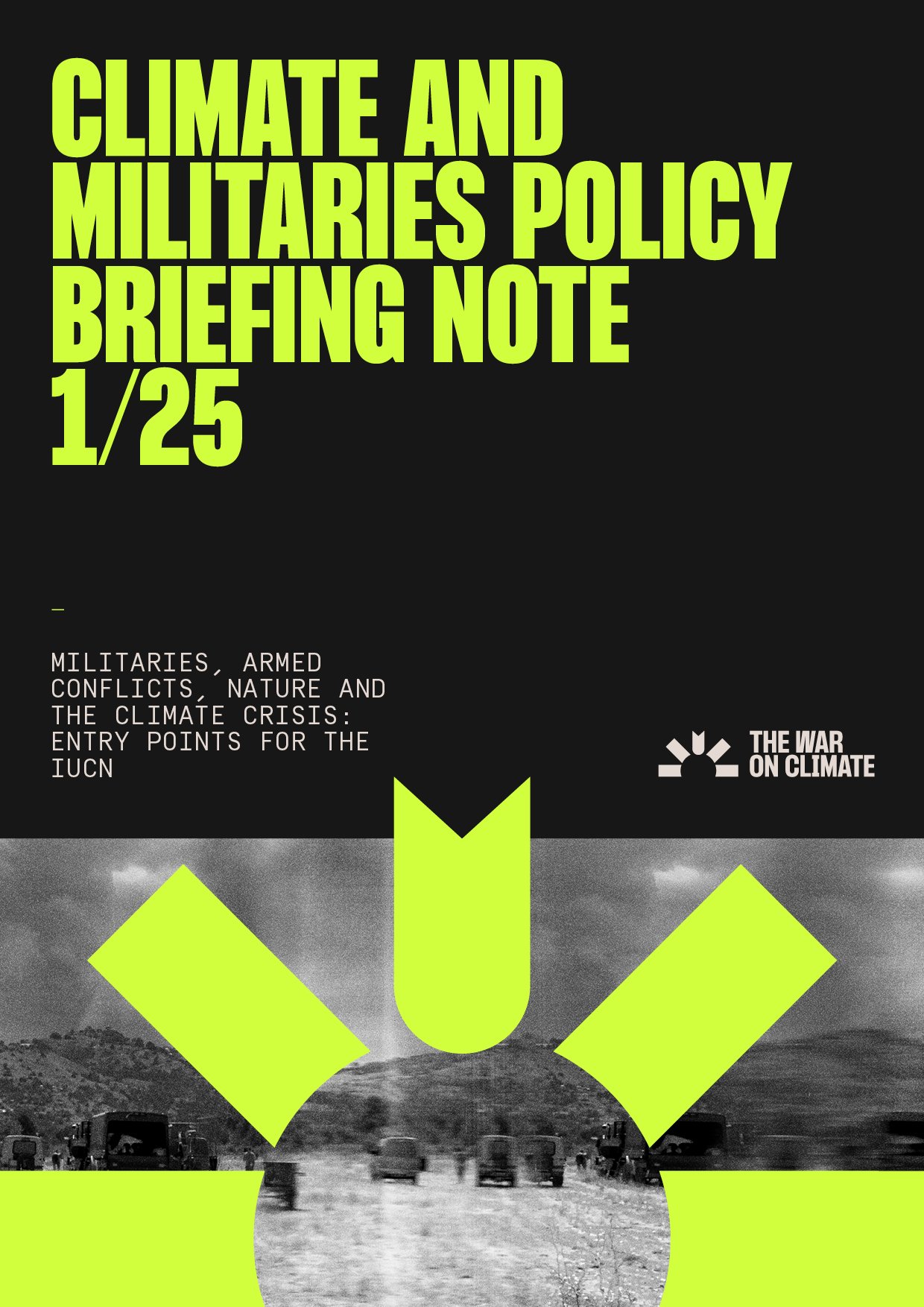NATURE HAS NO DEFENCE against war.
POLICY
▼
The War On Climate is bringing the environmental and climate impacts of militaries into the heart of global climate policy. We'll be at COP30, pushing the UNFCCC to recognise the climate impacts of militaries in emissions reporting and reduction strategies. We need to close the military emissions gap, and drive policy change, which locks in these deliberately unreported emissions into climate frameworks. But the mission doesn't end with COP30.
The War On Climate will keep this issue on the agenda, building pressure and momentum until real change happens. A peaceful and sustainable future is in everyone's interest.

THE GLOBAL NORTH SPENDS 30 TIMES MORE ON THEIR MILITARIES THAN ON CLIMATE ACTION AND ENVIRONMENTAL PROTECTION.
THIS IMBALANCE DEEPENS THE CRISIS IN REGIONS ALREADY HIT HARDEST BY WAR AND THE CLIMATE CRISIS.
POLICY BRIEFINGS ▼
The first policy briefing from The War on Climate examines the intersection between militaries, armed conflicts, nature and the climate crisis. Amongst other things, this encompasses how the management of the estimated 1-6% of the world’s land surface allocated to military training areas can influence emissions and nature, as well as how the conduct of hostilities, and post-war recovery policies, affect carbon sinks such as tropical forests. This policy briefing outlines entry points for the International Union for the Conservation of Nature (IUCN) ahead of its World Conservation Congress.
Through the UNFCCC, the world’s governments coordinate global climate action. But there is a missing piece - militaries do not have to report their emissions, leaving a huge blind spot in global climate action. As escalating military spending threatens global climate targets, the War on Climate’s second briefing outlines what the UNFCCC can do to address the global climate impact of militaries.




